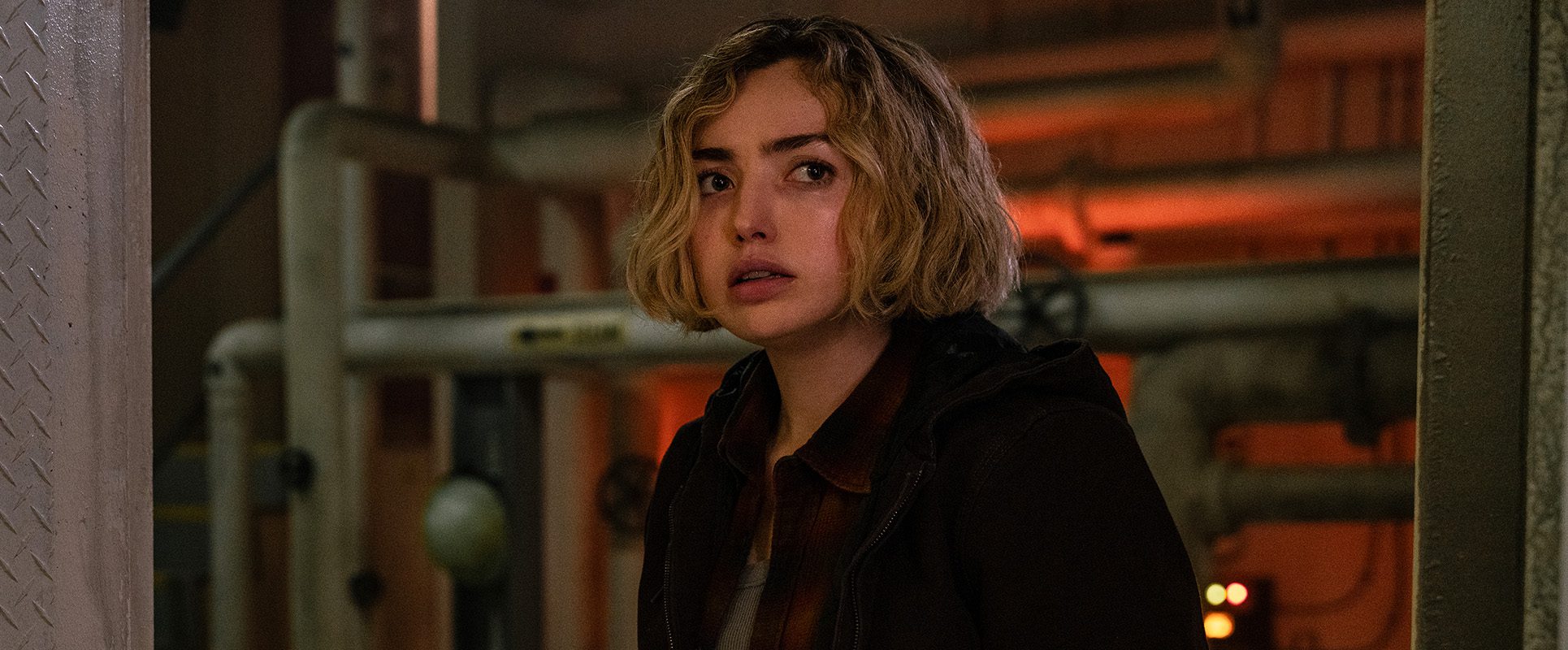Summer is a time for reflection. There aren’t a lot of shows on TV, so there’s more time for sitting back and analyzing the pieces of media I love. (What, that’s not how you relax?) In my ruminations, I realized a lot of my favorite pieces of media share one particular character in common. That one character who can’t catch a break, but the narrative doesn’t always give them the space to process or even acknowledge what they’re going through. They put up with a lot of abuse, sometimes literal, sometimes metaphorical, but it doesn’t turn them hard, bitter, or angry. In fact, most of the time you’ll find them with their arms around another character comforting them through their suffering.
But don’t let their silent suffering on their own behalf fool you. If someone they love is in pain, they will rise up like the goddess of war herself to protect them. And don’t mistake silence for lack of intelligence, or carefully chosen words for lack of investment. Their brain is constantly whirring with ideas, insights, and minute perceptions that will help them understand and care for the people around them. They’ll probably know what another character is feeling before that character does, so attuned are they to the world and people around them. I’m talking, of course, about the Suffering Empath.
It all started with Legend of Korra and the character of Asami Sato. She’s the ur-Suffering Empath in my mind, or at least the first one I’d mentally put that label on. Kylie, Julia, and I would joke about such and such a character being “a Sato”, by which we meant Asami. Then I started seeing ‘Satos’ everywhere. In Lena Luthor, in Nicole Haught and Waverly Earp, in Sansa Stark, in Max. These were characters I felt very drawn to, and they had a lot in common despite being in different roles, genres, and mediums. Like the Dutiful Princess, I had hit upon a character trope that appealed to me and was useful in character analysis.
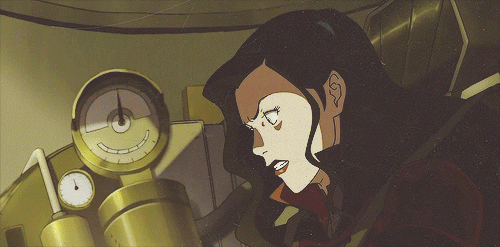
So what does it mean to be a Suffering Empath? As you can imagine, it involves suffering.
Suffering in (Near) Silence
A lot of characters suffer tragedy, pain, or loss in narratives, but what sets the Suffering Empath apart is that their suffering is rarely foregrounded or even addressed. Onscreen mental and physical suffering frequently occurs on the sidelines or in the background of other, more prominent characters’ pain. Their experience of tragedy will happen primarily silently, within their own internal space, rather than become the focus of the story or a prominent topic of discussion between characters or the central conflict of the narrative.
Consequently, they feel deeply, but not loudly. They may share their experience with one person they trust, though even then it will likely come across as somehow less ‘dramatic’ than a viewer might expect under the circumstances. In other situations, their feelings may be entirely latent, visible only through body language, facial expressions, or other nonverbal cues to the immense pressure and pain they’re under inside.
Take Asami Sato for example, who never discusses her father’s betrayal or death on screen in Legend of Korra. I admit that this stems more from the Doylist explanation that Bryan Konietzko and Michael DiMartino didn’t put a lot of effort into explicating Asami’s experiences. In fact, that’s frequently the Doylist explanation for why the Suffering Empath suffers in silence. However, I contend that this is one of those instances where Doylist explanations can lead to fruitful Watsonian characterizations. Especially because the backgrounding of Asami’s suffering is not an isolated incident, either for Asami as a character specifically or for other characters who share this same trope.
In fact, the choice to background the Suffering Empath’s experiences leads to similar characterizations across the board. So regardless of the Doylist explanation, the result is a remarkably consistent character, one of whose primary features is the way they sublimate their own experiences of suffering in order to reach out to others. But I’m getting a head of myself.
Lena Luthor from Supergirl is good example of a Suffering Empath who is given slightly more screen space to explore her experiences than Asami. We get more verbal personal reflection from her, though she still rarely burdens Kara or others with the full weight of what she’s going through. In fact, most of her reflection is done while she’s alone, and silently. Katie McGrath’s excellent acting communicates just how much Lena feels about her Mother and Cadmus without having to ever verbalize it.

The same could be said of Waverly from Wynonna Earp, especially in the latter half of S1 after her older sister Willa returns. She stuffs most of her ambivalent and outright negative feelings about Willa when she’s around Wynonna so as not to burden her older sister, who happens to be happy to have their sibling back. Yet in situations where she can safely express her feelings without hurting someone, she opens up. She talks a bit to Nicole and even confronts Willa about their troubled childhood. However, most of her feelings stay safely locked away, only visible on her face or in a hushed barb meant only for her own ears.
None of the characters mentioned, you’ll notice, are the protagonist. In fact, Suffering Empaths rarely take center stage. They’re frequently siblings, best friends, mentors, or romantic partners to a more primary character. Think of Asami, Lena, Nicole, or Remus Lupin from Harry Potter. They support the protagonist rather than being the protagonist themselves. And if they are a primary or secondary protagonist, like Max from Black Sails or Sansa Stark from A Song of Ice and Fire, they don’t usually draw attention to their own pain the way a more traditional protagonist might.
Take Max. Once again, there is an intersection of Doylist and Watsonian implications, as the failure to significantly address Max’s trauma from S1 in S2 is a flaw in the storytelling. But, as with Asami, the resulting Watsonian characterization is rather consistent. A simple writing flaw becomes instantiated as a high degree of empathy for others in pain that turns her outward rather than focusing on her own trauma. Which leads us to the next important feature of the Suffering Empath.
Driven By Empathy
Whether protagonist in their own right or supporting character, the Suffering Empath cares deeply about others and puts their pain before their own. That’s not to say Suffering Empaths are gluttons for punishment. They don’t’ go seeking suffering; suffering finds them. They will endure what they cannot control or alleviate, but drop everything if someone else is hurting. In fact, it is precisely their experience of significant suffering that turns them outward. One of their greatest concerns, therefore, is minimizing the suffering of others.
Let’s return to Max for a second. She could have used Anne Bonny’s trauma against her to get what she wanted, and indeed, that seemed to be what the writers intended at first blush. However, the story evolved. Once Max saw the depth of unresolved pain in Anne and understood what she’d been through, she turns empathetic and protective. She’ll do whatever she can to assist Max. She’ll find her a new job even if it separates them. She’ll try to repair the damage in Anne’s and Jack’s relationship even if it means Max might lose her. Her own trauma is put on the back burner because someone she cares about needs her support.
“I think you know who that is. And who his friends are, who his captain is. I think you know what this will provoke. I think you know how dangerous the consequences promise to be, and I think you knew that before you took up the knife. I think I know why you did it, and I don’t think it had anything to do with him, or with her, or with gold. I think it had to do with something entirely different… and I understand. So I will not let those consequences touch you. I will stand in between you and them, and I will protect you.”—Max, Black Sails 2×06
Asami Sato displays the same instinct to put other people’s pain before her own at the end of Book 3. She willingly sublimates what she’s going through with her father in order to care for Korra. Sansa’s pivot from fear of Sandor to compassion once she hears his story is another good example of the Suffering Empath’s high degree of empathy, even for characters that frighten them. In fact, Sansa exhibits such a strong sense of empathy that she feels bad for Joffrey as he’s choking to death. The boy who physically, verbally, and emotionally abused her is dying and instead of bitter glee, she feels sorry for him. Classic Suffering Empath.
The same could be said for Remus Lupin, who faces a shit tone of prejudice for having J. K. Rowling’s equivalent of AIDS (*sigh*, that’s a topic for another post). Not to mention the physical and emotional suffering he must endure with being a werewolf, the loss of all his friends, and teaching the child of one of his dead best friends. And yet, is he is far more concerned with helping and caring for Harry than his own pain.
Due to their sensitivity to others’ pain, Suffering Empaths are highly protective of more vulnerable characters in their sphere. Sansa protecting Dontos or looking out for the court of the Red Keep during the Battle of the Blackwater are good examples. Despite her fear of Joffrey and the battle, those she perceived as being more vulnerable overrode her fear.
It can go beyond that, too. Suffering Empaths won’t typically fight on their own behalf (see Suffers in Silence), but lord help you if you mess with someone they care about. Their impulse to minimize suffering makes them fiercely loyal and protective of their loved ones, and they will burn the world down if it means preventing someone they love from enduring pain.
In this most recent season of Wynonna Earp, Wynonna has been a total asshole to Nicole on multiple occasions. Even mediated contextually, it’s not the best behavior. Yet the most Nicole can say to her is basically ‘you’re mean’ and storm out. But when Nicole believes that Wynonna hurt Waverly, she’s ready to shoot the older Earp sister. She tells Waverly she would kill to protect her, but won’t tell off Wynonna when she’s the one being hurt. Go figure. That same protective instinct comes out in the situation with Tucker taking upskirt photos of high school cheerleaders. She’ll let Tucker insult her to her face without reacting, but him taking advantage of vulnerable girls crosses the line.
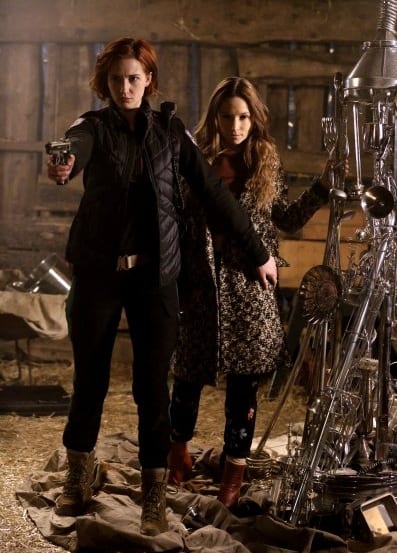
This protective concern for others can, ironically, lead them to isolate if they believe protecting someone they love means letting them go or that someone will be better off without them. They will sacrifice their own happiness to protect someone else, even if their and their loved ones happinesses are intertwined. They understand that letting someone go will be hurtful to them both. But in these scenarios, the Suffering Empath believes that the least suffering will occur by making a ‘clean break’. Like when Max tells Anne to take her share of the Urca profits and go. She believes the best way to protect and care for Anne is to go their separate ways. No matter how painful it is, Max believes doing otherwise would be more hurtful to Anne in the long run. She can bear the weight of her own feelings; it’s what Suffering Empaths do after all.
Internal But Not Inactive
Behind these two more visible traits lies one of the most misunderstood aspects of the Suffering Empath: their highly active internal world. Suffering Empaths instantiate their empathy in the form of active compassion for others, but there’s more going on inside of them than what they say or do to help people. Suffering Empaths are intuitive to the core and read people accurately, which allows them to maximize their chances for empathy. They see patterns in personalities and behavior, and can extrapolate from their own experiences to better care for others. This is, after all, the heart of empathy, the ability to understand someone else’s experience and feelings.
Lena Luthor reads her mother like an open book. Yes, this stems partly from having known her for so long, but a lot of it is her intuition. She can read between the lines of what Lillian tells her. We see this as well in her “you could have fooled me” line to Kara regarding her being a journalist (admittedly a clear Doylist attempt to push Kara into journalism but still). She has an uncanny ability to sense when something’s wrong with Kara merely through tone of voice.
Likewise with Nicole sensing that something was ‘off’ about Waverly at the beginning of this season. It wasn’t just because Waverly ‘tasted different’, though that in and of itself is a highly intuitive thing to say. We also see Nicole check-in with Waverly weekly, sometimes multiple times in an episode, and always in those moments where something is off about Waverly. Nicole caught the minute differences that not even other people close to Waverly noticed.
“I just want to make sure that you’re okay. You know, that deep down you’re still my Waverly.”—Nicole, Wynonna Earp 2×01
“Wynonna, have you noticed any, like, changes in Waverly lately?…Ever since Willa was sent down, she’s been acting not herself…it’s just that what I really love about Waverly, it’s like it’s sometimes missing, you know. This sweetness. She’s become hard, cruel.”—Nicole, Wynonna Earp 2×03
Sansa Stark notices when people’s facial expressions aren’t entirely sincere and reads Joffrey’s expectations and behavior with pinpoint accuracy. She can sense what other people want from her, too (when she’s not under extreme duress, like a knife to her throat), and can play into that both for self-preservation and out of compassion. Asami’s instinctive, flawless teamwork with Korra likewise stems from her ability to accurately read and predict Korra’s behavior. With the right people, teamwork with a Suffering Empath can feel almost uncannily prescient.
Although they suffer in near silence, the mind of a Suffering Empath is constantly whirring. The narrative may not give them space to verbalize what they’re going through, but that doesn’t mean they’re not thinking or processing. In fact, just the opposite. Their intuitions about others, acts of empathy and compassion, and sometimes prescient teamwork are a direct result of how much they’re processing about the world, others, and themselves at any one time.
In visual media, we see this processing primarily via facial expressions. Nicole or Lena’s face journeys clue us into everything they’re thinking but not saying. Books, especially those with a close narrative voice, allow us to get into their head and see this phenomenon at work. All you have to do is read one of Sansa’s chapters to realize just how much is happening in her head in the space of what narratively is only an hour or a day.

The degree to which they are internal characters actually plays why some segments of fandom consider Suffering Empaths to be ‘boring’ or ‘blanks slates’. If you’re reading for plot, for example, Sansa’s internal, intuitive headspace won’t be as thrilling to read as the characters more involved in the main action. A character like Asami or Nicole will be under appreciated because so much of their world is not accessible to the audience unless the writers give them a chance to verbalize it.
“We’re so used to the externally-driven hero, and what we tend to celebrate is tied to action. Introverted women who are perceptive and empathetic can too often be seen as weak and incapable, and many shows who have such a character force them into a mold of a more “active” person.”—Kylie
Other Traits
No doubt you’ve picked up by now on the fact that most Suffering Empaths are female characters. They also frequently conform in many ways to stereotypically feminine coded activities, behavior, or dress. For all her engineering background and skill, Asami is still very ‘feminine’. Same with Max and Sansa, both of whom for the most part embody the feminine ideals of their society, especially in how they present themselves to the world.
To my mind, the gender disparity is likely because empathy is strongly coded as ‘female’ in our society. There’s nothing actually ‘feminine’ about empathy, but for some reason *cough* toxic masculinity *cough* male characters rarely become defined by their empathy and compassion. While writing this piece, I started to wonder if this might lie behind the recent Dark and Gritty™ reboots of Batman and Superman, both of whom are characters who have in the past been driven by compassion.
The Batman I was raised on—from Batman: The Animated Series—was driven almost entirely by empathy borne from his experience of suffering at a young age. He’s actually a great example of the extremely rare male Suffering Empath protagonist. We got to see more of his internal processing due to him being the protagonist, but for the most part, the animated series focused on how he put his experience of suffering to work in reaching out to others who were vulnerable and hurting.
It should be noted, too, that while several of these characters are queer women—Asami, Max, Nicole, and Waverly, for example—the Suffering Empath is not to be confused with the Suffering Bisexual. Not least because not all queer Suffering Empaths are bisexual women (see, Max and Nicole). But also because the Suffering Bisexual refers to the bisexual female character who survives and must suffer the loss of their (typically) lesbian love interest. Like Clarke from The 100 after Lexa’s death.
Intelligence and/or wisdom often goes along with Suffering Empaths. Watch any scene from Black Sails with Max at a negotiating table, and you’ll see that she can think and talk circles around just about everyone there. Lena Luthor is canonically the smartest person in the world, or close to it since she beat Lex Luthor at chess. Despite what Sandor and Cersei think, Sansa is quite intelligent and precocious for her age. Littlefinger might be the first to actively tap into it, but her smarts have always been there.
Older Suffering Empaths often take on the role of mentor, their intuition having been honed over the years into wisdom. Lupin, for example, blends intuition with compassion in his interactions with Harry, and is the kind of teacher who seems to know instinctively what students can handle and when. He’s not showy about it though, nor are most Suffering Empaths. Most of the time, they’re content to use their intelligence and/or wisdom to protect the ones they love and help people.
As such, they typically prefer internal reform of a system over violent revolution. Upon experiencing a fucked up system, their response is likely to be “change the system” rather than “fuck the system”. Like Nicole channeling her frustration with Tucker getting off scott free into making the system work for her and Nedley once she knows Nedley’s plans. (I can’t wait to see where this plotline goes.) Think of Asami integrating the Spirit vines into her new plans for the city’s infrastructure, Sansa’s “make them love me” approach to queendom, or Lena moving to National City to rebrand L Corp rather than starting something new.
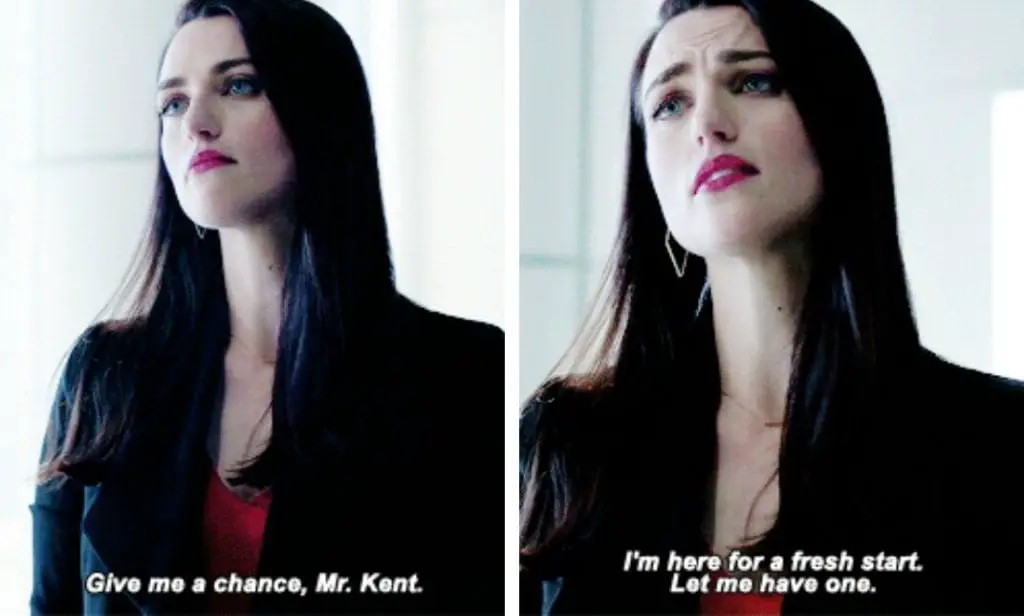
Unlike the Dutiful Princess, Suffering Empaths don’t inherit power or a sense of obligation to wield it appropriately. They don’t typically seek positions of power either, unless it is done to prevent or minimize the suffering of others. While it might not appear to be the case on the surface, Max is actually a great example. She does not seek power for power’s sake. There’s a level of self-preservation in her bid to control the brothel, for sure. It’s understandable given what she suffered as both a slave and a sex worker.
But note that she uses her power to protect her own, which is ultimately what she’s fighting for. She wants a better life for people who have had to suffer as she had. It’s why she’s so firmly committed to ‘civilization’. She sees it as the only way to protect the most vulnerable in society from exploitation: the poor, the slaves, and the sex workers. When English ‘civilization’ turned out to be as, if not more, exploitative than the pirates, she quickly turns on the interlopers, all the while protecting her sources even at great cost to herself.
Weaknesses
Not all is perfection and wonderful displays of altruism with the Suffering Empath. Given how internal they are, they can be morose or too much in their own heads. While this is mostly a non-verbal phenomenon, it can leak out if their needs aren’t being met. They give a lot to others, you see, but they can feel taken advantage of if they don’t perceive the relationship as being equal. They may expect the same level of intuitive empathy and perception from others and will get frustrated if those expectations aren’t met. Just see how upset Nicole became when she felt like Waverly wasn’t paying enough attention to her desires. Nicole expected Waverly to understand both what upset her and why, because she offers that to Waverly.
To be fair, Waverly normally does, given that she has strong Suffering Empathy traits as well. It’s just that the Goo is getting in the way.
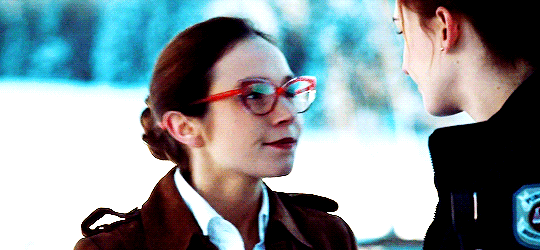
Another outcome of giving so much to others is the tendency to neglect themselves and their self interest. They can even be detrimentally empathetic with characters who don’t deserve it; if anyone is going to be run over by the Charming Asshole with a Tragic Backstory, it will likely be the Suffering Empath. Their intuition can save them from getting in too deep, but it’s still a danger. Especially if they’re feeling isolated or disconnected due to the weight they’re carrying from their experiences. A Suffering Empath may reach out to someone who is unhealthy for them just for the sake of stability and comfort, more so if that person fills a role in their lives they feel most in need of.
When her family’s business is ruined, Asami reaches out to Mako because she’s in need of unconditional support like one gets in a romantic partner. He’s also convenient, but that’s another story. Lena falls quickly into step with Rhea because she’s in need of a mentor/mother figure who believes in her, admires her skills, and isn’t obviously using her. The tragic irony of Lena trusting a woman who turns out to be manipulating her isn’t lost on me. It’s precisely where a vulnerable Suffering Empath is likely to go wrong when they’re desperate to fill a need in their lives and feel less alone.
Most of the time, though, they just neglect their personal emotional lives for too long. Not that there’s anything ‘just’ about it. In extreme cases, the weight of sublimating their own suffering to help others will reach critical mass and the Suffering Empath will break. When this happens, they’re likely to turn vindictive and cut ties with friend and enemy alike. An abrupt ceasing of contact is the best you can hope for in this scenario, but sometimes a more aggressive burning of bridges occurs. Just look at how Max lashed out at Eleanor in S1 and S3.
Should Lena have a ‘breaking point’ in S3 of Supergirl, it will be because she’s suffered enough and is done with a capital “D”. And who could blame her, honestly. An emotionally abusive mom, a manipulative mentor, finding out she’s ‘really’ a Luthor. Plus, the blatant distrust everyone but Kara displays in spite of her consistently choosing to be a hero and all because of her last name? I can’t blame her for being Done™ (though that doesn’t make her a villain).
Finally, Suffering Empaths have potential to be exceptional manipulators given their strongly developed intuition and ability to read people. This may be benign or done for positive ends, like Max using her abilities to protect Anne. It can be a form of self-preservation as well. Sansa controlling how people perceive her in King’s Landing in order to stay safe is a form of self-protecting manipulation.
It may also be a more active and harmful form of control. This can be the result of a Suffering Empath reaching their breaking point and lashing out, or because they were groomed in that direction, as Littlefinger is attempting to do with Sansa.
—
Not everyone can identify with a Suffering Empath. Much of the time, a fandom at large might not even notice them. But they’re there, on the sidelines, quietly suffering while reaching out to those they love with support and compassion. They might not be the protagonists, but they keep the protagonists going. Where would the hero be, after all, without someone to hold them, care for them, and offer what they need to get through the day without them even asking? Where would they be without the wisdom and insight of their Suffering Empath girlfriend or sister or mentor?
More than anything, it is the way in which Suffering Empaths turns pain into compassion that appeals to me. They are a vivid reminder that trauma doesn’t have to make you an absolute dick or villain. It’s hard work (just ask them on a day when they’re feeling neglected or ignored), but everyone can choose to let their suffering shape them into a better person. Media might tell us ‘there are no true knights’, but damn if there aren’t Suffering Empaths out there being true knights and bringing that out in others.

Have a favorite Suffering Empath I didn’t mention? I’d love to hear it, especially if there are male characters I’ve overlooked who fit the bill, as they’re so much harder to find.




